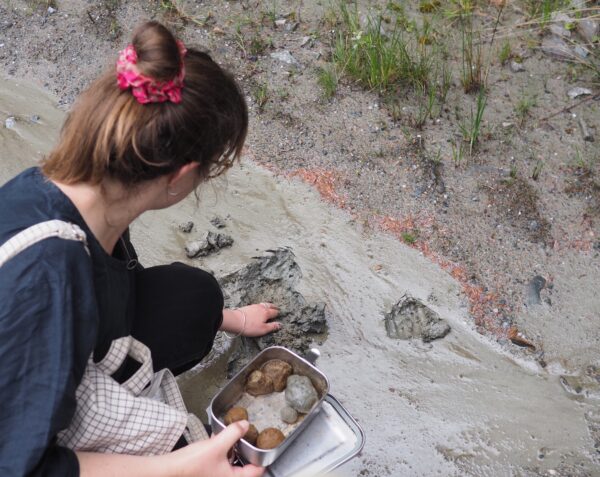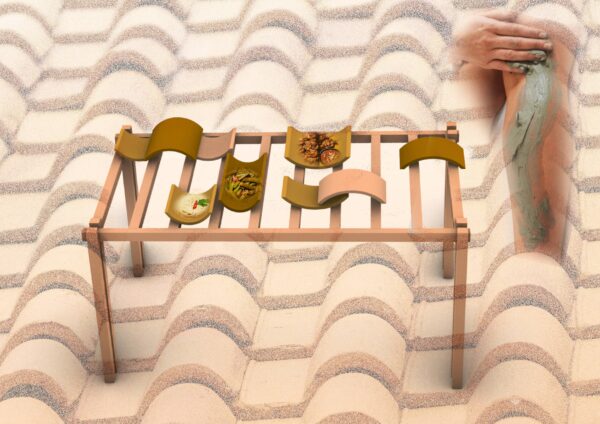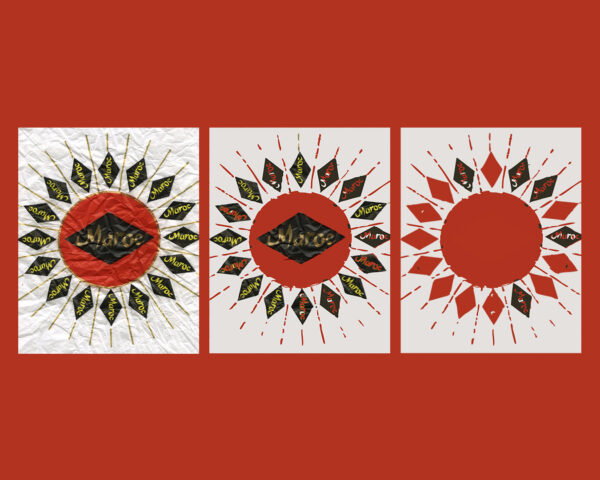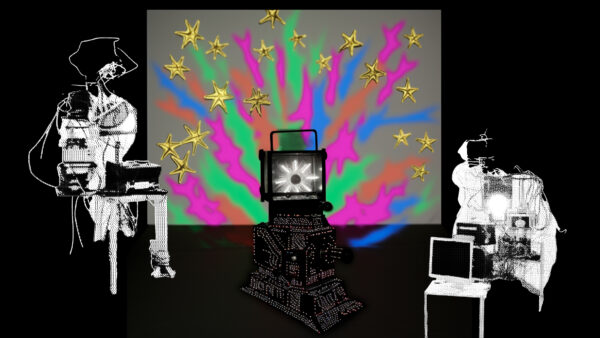

Residencies Indonesia, Morocco and China – 4 designers selected
Last spring, the Creative Industries Fund NL called on makers and designers to submit a proposal for three residencies: a residency at Jatiwangi Art Factory in Indonesia, at Think Tanger in Tangier or at Videotage in Hong Kong. A total of four designers were selected for a working period.
Residency Jatiwangi Art Factory Indonesia
Hannah Rose Whittle and Studio Shuang Wu were selected for the Residency Jatiwangi Art Factory out of six applications from designers, architects and spatial practitioners for two available residency places. They will start working on their research proposal in 2026 for a period of two months. They each receive a subsidy of € 4,500, intended to cover travel, material and transport costs and as a contribution to living expenses.
Jatiwangi art Factory (JaF) is an artistic collective in Majalengka, Indonesia, which works out of a former roof-tile factory. It focuses on the local community and the terracotta industry in the Jatiwangi district. Clay and strengthening the community are at the heart of their activities, which range from visual arts and music to education and festivals. JaF also works under the name Kota Terrakota on a shared vision for the future of the local terracotta industry, with the emphasis on preserving the cultural landscape and advancing a new clay culture. The residency at JaF offers designers and architects the opportunity to conduct research, expand their network and develop new work, with a focus on the local community and the landscape.

How the earth speaks: exploring the diversity of clay soils, plant ashes and their narratives – Hannah Rose Whittle
Hannah Rose Whittle will explore the local soil, flora and industrial by-products – such as wood and plant ash, recycled glass and residues from local industry – and use them to develop sustainable, site-specific ceramic glazes. This is intended to result in a glaze library for the community. At the same time, she will examine the impact of clay extraction and tile production on the landscape and social structures. In doing so, she is reflecting on the age-old ceramic tradition in relation to the contemporary climate crisis and wants to contribute to reducing extractive relationships with the earth.

Rice Roof – Studio Shuang Wu
With Rice Roof, Studio Shuang Wu explores how, as a result of colonialism, Indonesian culinary traditions, such as the rijsttafel (rice table), have deeply permeated Dutch society. During the residency, Studio Shuang Wu will conduct field research and work with the local community to make tiles using artisanal methods, a practice that is disappearing due to the influences of industrialisation. These tiles will be assembled into a table on which a traditional Indonesian meal will be served. In doing so, the project aims to reflect on almost-forgotten ceramic techniques and how colonial influences affect tastes, craft and the landscape.
Think Tanger Marokko
Eszter Nagy has been selected for the Think Tanger cultural platform out of four applications from designers, architects and makers for a two-month working period in 2026. She receives a subsidy of € 5,500, intended to cover travel, material and transport costs and as a contribution to living expenses.
Think Tanger is a multidisciplinary cultural platform that focuses on stimulating culture, creativity, innovation and exchange in Tangier, Morocco. The organisation brings together artists, designers, researchers, businesses and local communities to take a critical look at the urban and cultural dynamics in a city in transformation, in order to better understand and stimulate dialogue on the subject. The residency is being provided in collaboration with the Mondriaan Fund, which simultaneously offers an artist the opportunity to spend a working period in Tangier.

Think in Tangerines – Eszter Nagy
Inspired by the name ‘tangerine’, the type of mandarin that was exported from Tangier, Eszter Nagy is going to examine the citrus industry in Tangier through working-class stories and archival material. Building on a long-term study into global citrus networks, the focus is on the beginning of the value chain: Moroccan citrus production and the social dynamics associated with it. She aims to build a digital database and archive of locally printed citrus packaging materials. The colonial roots of these graphic expressions will also be examined. In collaboration with local residents, she will additionally organise screen-printing workshops, where stories of traditional heritage will be shared.
Videotage Hong Kong
Cyanne van den Houten has been selected for the media-arts institution Videotage in Hong Kong out of eight applications from designers, makers and observers within the field of digital culture for a three-month working period in 2026. She receives a subsidy of € 6,500, intended to cover travel, material and transport costs and as a contribution to living expenses.
Videotage is a media-arts institution in Hong Kong that focuses on researching and developing new work in the area of digital culture. The residency offers designers, makers and researchers the opportunity to work in Hong Kong on projects that explore the city’s social and urban dynamics, with a particular focus on the role of old and new media in this development.

Phantasmagoria: Ghosts Machines of the Pearl River Delta – Cyanne van den Houten
With Phantasmagoria: Ghosts Machines of the Pearl River Delta, Cyanne van den Houten aims to expose the hidden ecology of the Pearl River Delta, the densely populated urbanised area around Hong Kong and Macau, with an immersive installation that is simultaneously a reinterpretation of the 18th-century phantasmagoria, a theatrical phenomenon of that time featuring projected ghostly images. Using discarded electronics from Shenzhen’s and Hong Kong’s tradition of shadow plays, Van den Houten’s immersive installation creates a haunting liminal landscape in which visitors come face to face with the ghosts of failed AI experiments, dead chatbots and the ecological devastation caused by data mining. Obsolete devices turn into magic lanterns that react to visitors’ presence, revealing dreamlike sequences about how technology has ‘haunted’ Hong Kong throughout history.
assessment
In assessing the submitted proposals, the committee was aided by four advisers with relevant expertise in the creative industry and who are members of the Internationalisation of the Design Sector Grant Scheme advisory committee: Isabel Driessen, Zico Lopes, Elif Ozbay and Philip Schütte. They processed a total of 18 applications for three residencies.
The submitted proposals were assessed by the committee on the basis of three main criteria:
- The artistic quality of the work;
- The quality of the proposed project;
- The justification in relation to the purpose of the residency and the intended international exchange.
The assessment of the calls took the form of a tender: proposals are ranked according to the criteria and only positively assessed applicants stand a chance of winning a residency place. The highest-scoring proposals were awarded funding. In the collaborations with Think Tanger and Videotage, it was agreed that, following assessment by the committee, the highest-scoring proposals that received a positive assessment would be submitted to the residency location for final approval.






